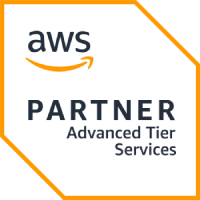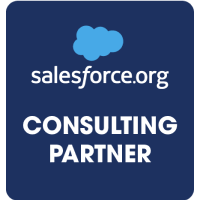AI for Oversight, Strategy, and Innovation
Equip your teams with the practical skills to apply AI for oversight, compliance, predictive analytics, and innovation in telecom and regulatory environments. The program blends hands-on labs with strategic frameworks for impactful decision-making.

5,131 learners enrolled
Created by:
Dr. Hafiz Hassan Saeed, Fawwaz Naeem

This Workshop includes:
-
In person expert-led sessions
-
Telecom & regulatory case studies
-
Hands-on labs and exercises
-
Certificate of completion
Skill level
Intermediate
Perfect for
Senior Executives, Managers & Founders
Duration
5 Days
Modules
5
overview
Leveraging AI for Oversight, Strategy, and Innovation
Learning Objectives:
- Understand the fundamentals of AI, machine learning, and their role in telecom oversight.
- Learn how predictive analytics can support compliance monitoring, fraud detection, and spectrum management.
- Gain hands-on experience with machine learning models applied to telecom and regulatory datasets.
- Explore generative AI applications for policy drafting, regulatory reporting, and automated documentation.
- Develop strategies for ethical AI adoption, transparency, and responsible decision-making in oversight.

WHY TAKE THIS TRAINING
Learn, Apply, and Transform with Gen AI
Customized
Learning Paths
Tailored training content to match your industry, role, and business needs
Interactive
Live Sessions
Engage directly with experts through hands-on, real-time learning experiences
Scenario & Role-Based Exercises
Practice applying AI in real-world regulatory scenarios such as network optimization, fraud detection, compliance monitoring, and policy automation
Real-World
Case Studies
Learn proven AI strategies from practical use cases across industries
Tested AI Toolkits & Frameworks
Get access to ready-to-use, battle-tested AI resources to boost your results
Direct Instructor Feedback
Receive personalized guidance to refine your skills and improve your prompts
Who Is This Course For
01
Senior Leadership (C-Suite and VP Level)
02
Department Heads and Managers
03
Startup Founders and CEOs
Learning from the best
Your Gen AI Coaches
Team Members

Case STUDY
Generative AI Training Course for Healthcare Leaders
Targeted training course that guided 240+ healthcare leaders on the transformative impact of Generative AI. Participants explored real-world case studies and undertook a consultative exercise to understand agile AI adoption at the enterprise level, aligning leadership goals with specific AI use cases and capabilities.
95%
Enhanced

Case STUDY
AI Capacity Building for Telecom Oversight
We partnered with a national telecom regulator to deliver a 5-day upskilling workshop on applying AI for oversight, compliance, and innovation. The program focused on practical use cases in telecom such as fraud detection, spectrum monitoring, predictive maintenance, and regulatory reporting.
88%
72%
PRICING
Empower Your Teams to Stay Ahead of the Curve
SGD 40,000/team

Team Plan
For teams up to 25 users or less
-
Customised Learning Paths
-
Real-World Case Studies
-
Tested AI Toolkits & Frameworks
-
3 Hours of Interactive Live Sessions with Experts
-
Scenario & Role-Based Exercises
-
Guided Feedback
Best Value
Variable Pricing

Enterprise Plan
For all team sizes
-
All benefits included in Team Plan
-
Team Size Flexibility
-
AI Strategy Consultation
-
Tailored Course Content for Your Business
-
Post-Training, Customized Support
Workshop Modules
Day 1: Foundation of AI and Machine Learning in Telecom Regulation
Session 1 Introduction to AI in Regulatory Sector (1.5 Hours)
- Comprehensive overview of AI, machine learning, and deeplearning distinctions
- Evolution from traditional rule-based systems to intelligent, data-driven regulation
- Global case studies of AI implementation in
telecommunications regulatory bodies - Analysis of successful AI transformations and implementation challenges
- Introduction to AI applications in spectrum management, compliance monitoring, and consumer protection
- Understanding the regulatory paradigm shift toward adaptive, intelligent oversight
Activities:
Interactive presentation on AI transformation, case study analysis, group discussion processes that could benefit from AI.
Session 2 Machine Learning Fundamentals (2 Hours)
- Fundamental principles of machine learning versus traditional programming methodologies
- Detailed exploration of supervised learning through telecom fraud detection examples
- Unsupervised learning concepts demonstrated through
network optimization scenarios - Reinforcement learning principles illustrated through
dynamic spectrum allocation systems - Understanding of how machine learning systems improve
through experience rather than explicit programming - Introduction to Python programming environment and
Jupyter Notebooks for data science applications
Activities:
Hands-on lab session for setting up Python and Jupyter environments; practical oding exercises demonstrating basic ML concepts.
Session 3 Data for Machine Learning (2 Hours)
- Critical importance of data quality in machine learning model performance
- Strategies for data collection that align with regulatory requirements and privacy constraints
- Understanding of features, labels, and data splitting methodologies for training and testing
- Techniques for handling missing data, managing categorical variables, and addressing data imbalance
- Data preprocessing workflows specific to regulatory and telecom datasets
- Introduction to exploratory data analysis techniques and statistical validation methods
Activities:
Hands-on EDA lab; practical exercises in data cleaning and preprocessing; data visualization techniques.
Day 2: Supervised Learnings and Predictive Analytics
Session 1 Regression Algorithms (2 hour)
- Theoretical foundations of regression analysis for continuous value prediction
- Linear regression principles and implementation for regulatory applications
- Advanced regression techniques including polynomial and multiple regression models
- Applications in network traffic prediction, service quality scoring, and revenue forecasting
- Model interpretation and coefficient analysis for regulatory decision making
- Statistical validation techniques for regression model performance assessment
Activities:
Hands-on lab building regression models.
Session 2 Classification Algorithms (2 hours 30 mins)
- Fundamental principles of classification for categorical outcome prediction
- Logistic regression theory and implementation for binary classification problems
- Decision tree algorithms including construction, pruning, and interpretation techniques
- Support vector machine concepts and applications in regulatory pattern recognition
- Classification applications in spam detection, customer churn prediction, and compliance monitoring
- Algorithm selection criteria for different regulatory classification scenarios
Activities:
Hands-on lab training decision tree classifiers; practical implementation of ogistic regression; comparative analysis of different algorithms.
Session 3 Model Evaluation and Validation (1 hour 30 mins)
- Key performance metrics including accuracy, precision, recall, and F1-score interpretation
- Cross-validation techniques for robust model performance estimation
- Confusion matrix analysis and interpretation for classification
problems - Model validation strategies specific to regulatory applications and constraints
- Performance metrics selection based on regulatory priorities and risk tolerance
- Statistical significance testing and confidence interval construction for model performance
Activities:
Comprehensive model evaluation lab; practical implementation of cross-validation; workshop on performance metrics calculation and interpretation.
Day 3: Unsupervised Learning and Advance ML
Session 1 Clustering Algorithms (2 hours)
- Fundamental principles of classification for categorical outcome prediction
- Logistic regression theory and implementation for binary classification problems
- Decision tree algorithms including construction, pruning, and interpretation techniques
- Support vector machine concepts and applications in regulatory pattern recognition
- Classification applications in spam detection, customer churn prediction, and compliance monitoring
- Algorithm selection criteria for different regulatory classification scenarios
Activities:
Hands-on lab applying K-means clustering for customer segmentation.
Session 2 Introduction to Deep Learning (1 hour 30 mins)
- Neural network fundamentals including perceptron theory and multi-layer network architectures
- Deep learning principles and backpropagation algorithm understanding
- Convolutional neural networks for image processing applications in infrastructure monitoring
- Recurrent neural networks for sequential data analysis in network traffic patterns
- Deep learning frameworks introduction including TensorFlow and PyTorch capabilities
- Applications in network security, advanced signal processing, and predictive maintenance
Activities:
Hands-on lab building basic neural networks; practical implementation of CNNs for image analysis tasks.
Session 3 Model Optimization (2 hours)
- Comprehensive understanding of overfitting and underfitting phenomena in regulatory models
- Regularization techniques including L1 and L2 penalties for model complexity control
- Hyperparameter tuning strategies including grid search, random search, and Bayesian optimization
- Feature selection and engineering techniques for regulatory dataset optimization
- Ensemble methods for combining multiple models to improve prediction accuracy
- Cross-validation strategies for robust hyperparameter selection and model validation
Activities:
Hands-on lab implementing grid search for model optimization; feature engineering workshop to improve model performance.
Day 4: Generative AI in Practice
Session 1 What is Generative AI? (1 hour 30 mins)
- Fundamental concepts of generative AI and its differentiation from discriminative models
- Generative Adversarial Networks architecture, training processes, and applications
- Variational Autoencoders theory and implementation for data generation tasks
- Transformer architecture and attention mechanisms for natural language processing
- Real-world applications in content generation, synthetic data creation, and document automation
- Generative AI applications specific to regulatory environments and compliance documentation
Activities:
Interactive demonstration of generative AI capabilities; hands-on exploration of pre-trained models for text and image generation.
Session 2 Exploring Generative Models (2 hours)
- Detailed examination of Generative Adversarial Networks training and optimization processes
- Transformer model architecture and attention mechanisms for natural language understanding
- Text generation techniques using pre-trained language models for regulatory documentation
- Image generation applications for creating visual content and synthetic training data
- Model fine-tuning techniques for domain-specific regulatory applications
- Quality assessment and evaluation metrics for generative model outputs
Activities:
Hands-on lab implementing text generation using pre-trained transformer models; image generation exercise for creating visual content.
Session 3 Applications in Regulation (2 hours 30 Mins)
- Automated drafting of public notices and policy summaries using language models
- Digital safety material creation and multilingual content generation for public awareness
- Synthetic data generation for testing regulatory algorithms and protecting sensitive information
- Compliance report automation and regulatory communication optimization
- Document translation and localization for diverse stakeholder communication
- Quality assurance and fact-checking applications for regulatory content validation
Activities:
Hands-on lab using generative models to draft policy summaries.
Day 5: Ethical AI and Strategical Roadmap
Session 1 Ethical Considerations in AI (2 hours)
- Identification and mitigation of bias in AI systems affecting regulatory decision-making
- Privacy protection and data governance frameworks for regulatory AI applications
- Transparency and explainability requirements for AI-driven regulatory decisions
- Fairness considerations in automated enforcement and compliance monitoring systems
- Deepfake detection and synthetic media challenges in regulatory communications
- Best practices for responsible AI development and deployment in government contexts
Activities:
Bias assessment workshop; ethical dilemma discussion sessions on real-world regulatory AI challenges.
Session 2 AI Implementation Strategy (2 hours)
- Comprehensive framework for developing and prioritizing AI projects within regulatory constraints
- Assessment methodologies for evaluating current regulatory capabilities and identifying improvement opportunities
- Resource allocation strategies for AI implementation including personnel, technology, and budget considerations
- Success measurement and impact assessment frameworks for AI
initiatives - Risk management and contingency planning for AI deployment in regulatory environments
- Change management strategies for organizational AI adoption and staff development
Activities:
Strategic planning workshop to develop an AI implementation roadmap; project prioritization exercise.
Session 3 Q&A and wrap up (2 hours)
- Recap of the key takeaways and most important points from the entire 5-day training program.
- A comprehensive final Q&A session to address any remaining questions on technical implementation, strategy, or ethical considerations.
- Discussion on next steps for capability development and strategic alignment of AI initiatives.
- Sharing of further learning resources and materials for continued professional development.
- Collection of feedback to conclude the training program.
What Students are Saying
Frequently Asked Questions
The program is designed exclusively for organizations and is delivered in person over 5 consecutive days through a mix of expert-led sessions, hands-on labs, and interactive group exercises. Participants work on real-world telecom and regulatory case studies, engage in practical data-driven projects, and receive direct guidance from instructors to apply AI for oversight, compliance and innovation.
Yes! Whether you're a beginner looking to understand prompt engineering basics or a professional seeking advanced strategies, this course offers a customized learning path tailored to your skill level.
No, the course does not have any pre-requisites, other than a willingness to learn!
Absolutely! The course includes scenario-and role-based exercises designed to address the specific needs of teams, such as sales, marketing, operations, customer service, and more.
Yes, we work closely with enterprises to tailor the course content, case studies, and examples to align with their industry and specific business needs.
You can register for the Team Plan directly on our website. For the Enterprise Plan, contact us to discuss your requirements and receive tailored information on the next steps.


















